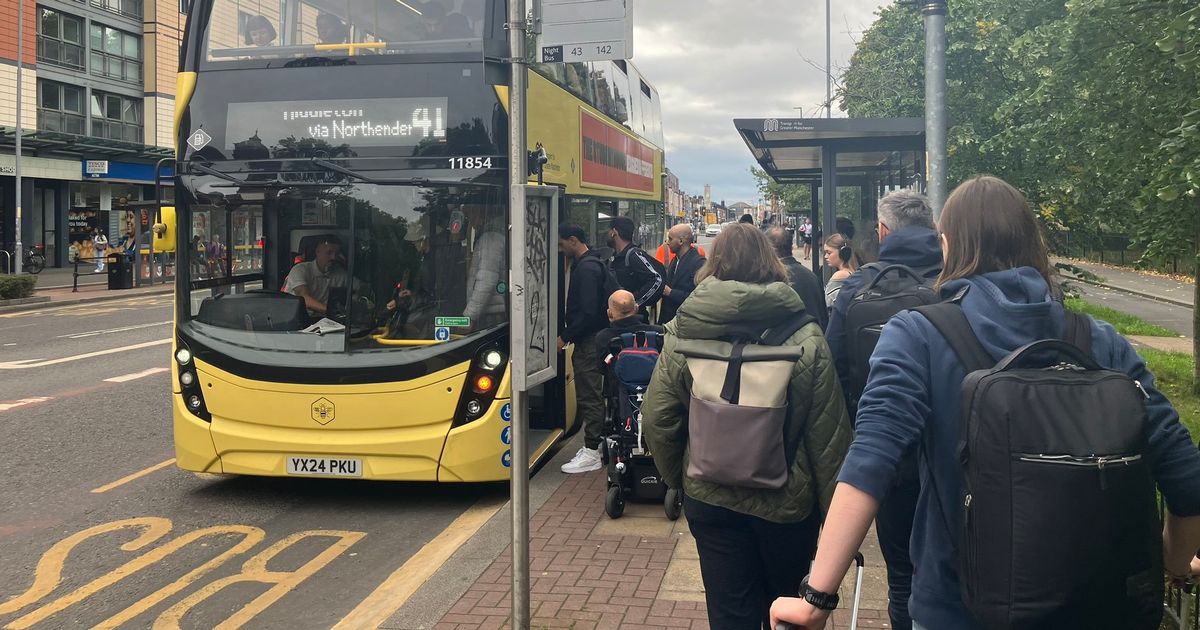Passengers faced major problems due to bus strikes.
16:17, 19 Sep 2025Updated 16:28, 19 Sep 2025
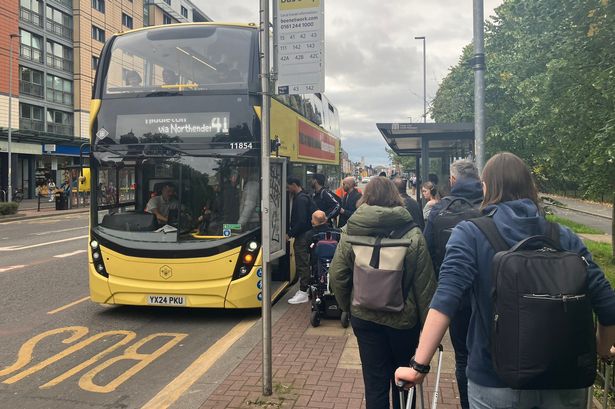 Passengers queued for limited services on major routes (Image: LDRS)
Passengers queued for limited services on major routes (Image: LDRS)
It was a day of ‘chaos and confusion’ as commuters across Greater Manchester faced the beginning of four days of industrial action today (September 19).
There was major disruption on key bus routes across the city-region as several services stopped running, leading to missed medical appointments, people ending up ‘stranded’ at bus stops, and others having to fork out for taxis.
It is thought that around two thirds of all services in Greater Manchester are affected because of a strike by some bus operator staff at Stagecoach, Metroline and First.
To see planning applications; traffic and road diversions and layout changes; and more, visit the Public Notices Portal HERE
Bus staff joined picket lines due to the dispute between unions and bosses at operating companies over pay.
The strike started on Friday, September 19 and is set to last until Monday, September 22.
Greater Manchester’s Local Democracy Reporters were out speaking to affected passengers around the region.
Bus users outside North Manchester General Hospital in Crumpsall suffered from the reduction in services on the roads.
Melanie McConville, 46, had been with her son Jacob who was in A&E with broken ribs. But the strikes left the family struggling to get back home after being treated at the hospital.
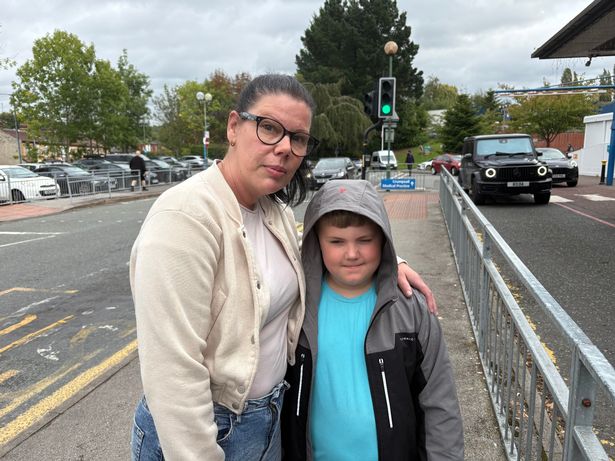 Melanie McConville with son Jacob at North Manchester hospital.
Melanie McConville with son Jacob at North Manchester hospital.
She said: “There’s no buses to Moston and obviously Jacob can’t walk. It’s a week before pay day and I’ve now got to fork out for a taxi – it’s rubbish.”
Carl Beaumont, 42, is an inpatient at the hospital and was also caught out by the strikes when he tried to visit his mother in Blackley. He said: “I’ve been here over 40 minutes with no sign of a bus, my mum’s going away later this morning and it looks like I’ll miss seeing her.”
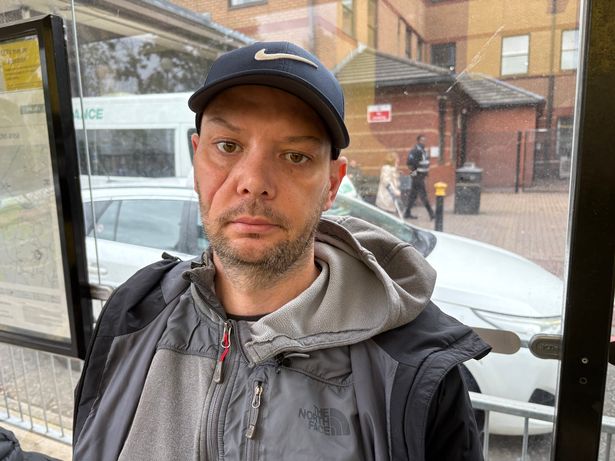 Carl Beaumont was stranded at North Manchester General hospital.
Carl Beaumont was stranded at North Manchester General hospital.
The strikes didn’t affect the whole region, with local services still running in Bolton and Wigan.
For those not lucky enough to have a bus on the road, tickets could be used on certain trains and Metrolink trams to try and ease the disruption.
Wilmslow Road and Oxford Road is one of the busiest transport corridors in Greater Manchester, a well-used track for commuters and students heading into the city centre.
But the roads were deserted with buses for much of the day with only a few solitary services running.
Milly, a trainee dietician working at Manchester Royal Infirmary, was one of those affected.
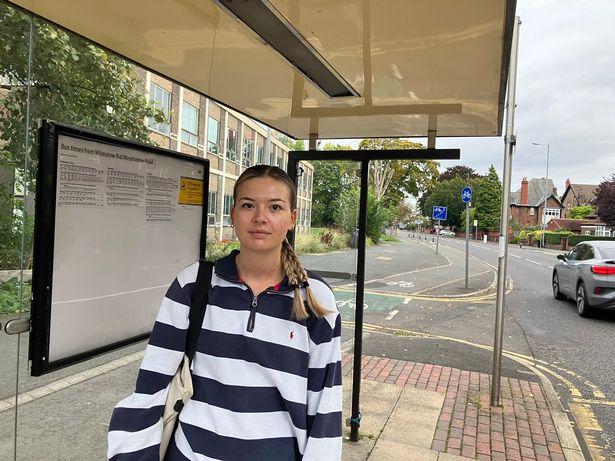 Milly struggled to get to work due to the strikes.
Milly struggled to get to work due to the strikes.
At 7.30am she turned up at a bus stop on Wilmslow Road expecting the usual flurry of services to hop on, but found out that the commute would take longer than usual because of the strikes.
She said: “I’m going to take an Uber instead now, it’s going to cost me £7. It’s annoying that buses are not running but I understand why the drivers are doing it. A lot of hospital staff will be affected.”
Further towards the city centre, large parts of Oxford Road were empty, with areas around the universities which are normally very busy found to be quiet.
Join our Traffic and Travel WhatsApp group HERE
The 41 was running and ended up shuttling many passengers in and out of town during the strike.
At around 10am, a 41 bus was seen heaving with people and the driver had to tell the rest waiting at the bus stop to wait for the next service.
Roger Cookson, 72, was waiting for a bus to Rusholme from the city centre and said the strikes had a massive impact on his day.
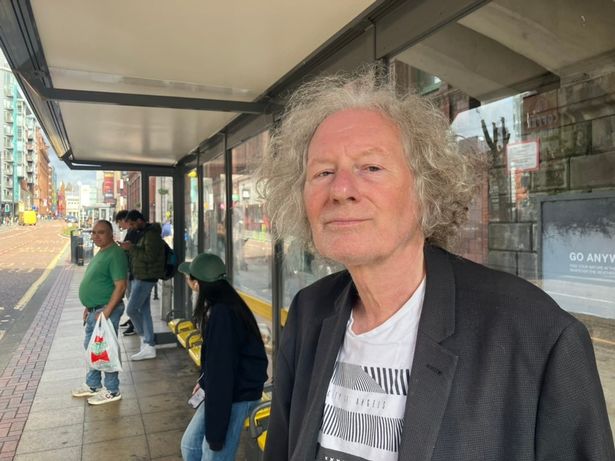 Roger Cookson said he had to walk everywhere due to the strikes.
Roger Cookson said he had to walk everywhere due to the strikes.
“People rely on buses in Manchester, I’m having to walk everywhere today, it’s tiring and long. It could take me an hour to get home rather than 15 minutes as usual.”
There was confusion in Partington, where Jun Li was stranded at a bus stop near her home waiting for the 255 bus she needed in order to get to start her shift at McDonald’s in Salford.
Originally from Hong Kong, Jun, 45, has been living in the area for four years. “I’m not waiting for an Uber,” she told the Local Democracy Reporting Service (LDRS). “Normally, the bus is my only source of transport from here.”
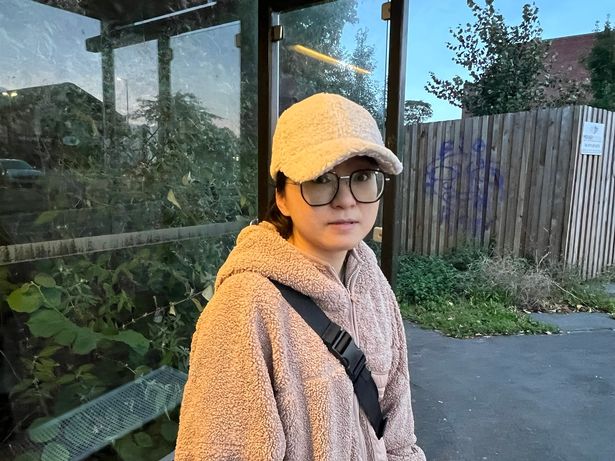 Jun Li took an Uber to work.
Jun Li took an Uber to work.
In Davyhulme, Phillipa Doherty, 31, was trying to get to her shift as an admin worker at Trafford General Hospital after dropping her child off at nursery.
“I normally get two buses from my home in Eccles,” she said. “It costs me £2, but today I’m having to use Uber and it will be at least £10.”
An Uber driver named Ehtisham was having a cigarette break near Manchester Royal Infirmary, and said demand had spiked due to the lack of buses on the roads, with fare prices up too.
“It’s really busy today, I’m dropping off kids going to school and people going to work. We’re making double the usual amount in a day, and the rates are up. We’ll all be working long hours.”
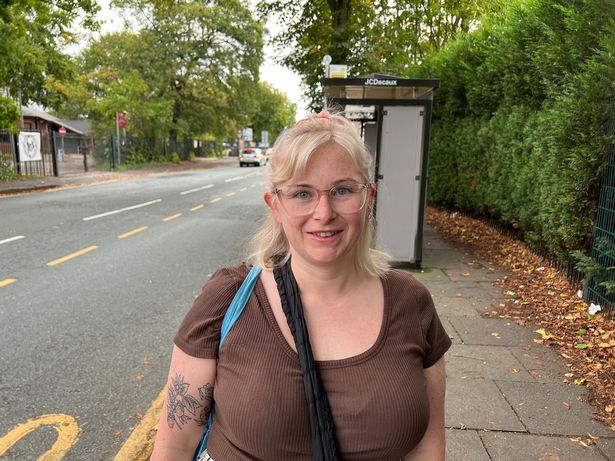 Phillipa Doherty said a taxi would cost her much more than the bus.
Phillipa Doherty said a taxi would cost her much more than the bus.
There were problems at the bus stops outside Manchester Piccadilly train station, with Transport for Greater Manchester staff having to tell people about the lack of buses, especially the 192 to Stockport which usually runs frequently.
Milad Ramks, 34, was at the bus stop trying to get to Longsight. He came to Manchester from Warrington for the day to collect a car.
He said: “I don’t know how I’ll get there now. I may have to take a taxi instead, so it’ll cost more. The strikes are causing a lot of disruption.”
One bus station seemingly hard hit by the disruption was Middleton.
At 8.45am on Friday the building was almost devoid of customers, with Bee Network staff at the bus stops outnumbering a small number of passengers.
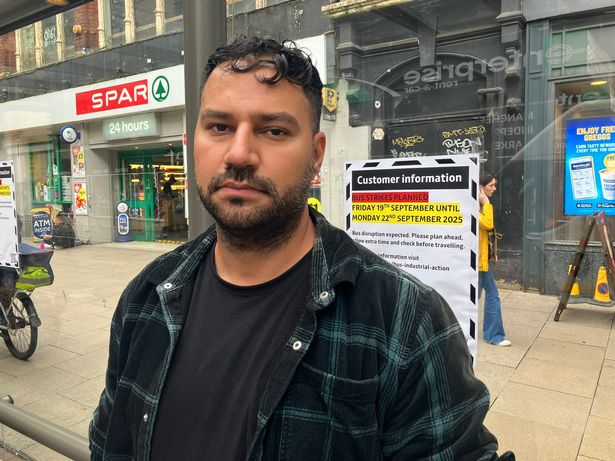 Milad Ramks was caught out by the strikes on his way to Longsight.
Milad Ramks was caught out by the strikes on his way to Longsight.
Rachel Taylor, 44 from Langley was here with her 15-year-old daughter to catch the 17 service to Rochdale for a long awaited medical appointment.
The industrial action had taken her by surprise.
“I had no idea the buses were on strike,” she said
“I’ve been told the next one’s on Tuesday, so I’ll have to reschedule the appointment and we’ll walk back home.”
Middleton bus station seemed badly affected with signs saying that only four services would be running from the hub over the next four days.
They are the 41, 159, 163 and 396 services.
In the Rochdale, north Manchester and Bury areas the 163 service seemed to be doing a lot of ‘heavy lifting’.
Operating between Heywood, Bury and the city centre, it is one of only four services currently stopping at Middleton bus station and was by far the most frequent service seen on the first morning of the strikes.
